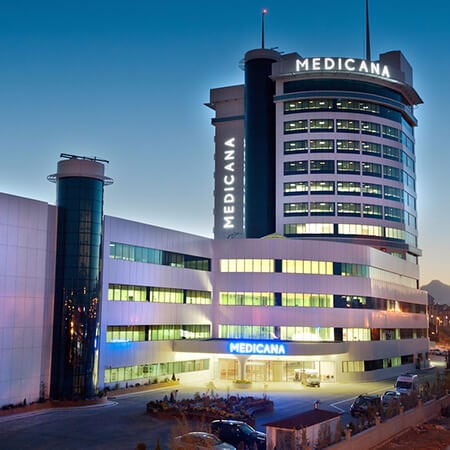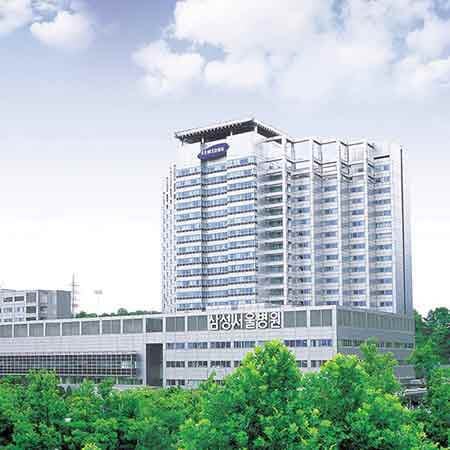If cancer spreads distant metastases, it is considered that the patient has a few months to live. This is true for most tumors, but not for prostate cancer. This disease is characterized by a relatively favorable course. The distant subsidiary tumors grow slowly and often respond well to chemotherapy. Therefore, even in the case of detection of metastatic prostate cancer, the patient has many treatment options, which can significantly increase his life expectancy.
Content
- Treatment options for stage IV prostate cancer
- Lutetium 177-PSMA
- Medical treatment abroad
- Organization of medical treatment abroad
Treatment options for stage IV prostate cancer
At the stage IV, the tumor has a very large size. It grows into neighboring organs and tissues, such as bladder, rectum. The prostate cancer metastases in men can be detected not only in the nearby lymph nodes, but also in distant organs and tissues.
A complete cure of the disease at this stage is impossible. However, it is not a reason to give up. With a proper approach to prostate cancer treatment, a person can live with this disease for several years. The goal of cancer treatment is not only prolonging the patient's life, but also improving its quality, reducing the symptoms, such as pain and functional pelvic disorders.
Here are the main methods used in the treatment of metastatic prostate cancer:
- Surgery to remove prostate. In most types of cancer, the primary tumor is not removed at the stage IV cancer, since it does not make any sense – life expectancy cannot be increased due to the presence of fast-growing subsidiary tumors (metastases). Nonetheless, in case of prostate cancer this operation can be performed. If surgical intervention is followed by the therapy, which inhibits the development of metastases, surgery to remove the prostate gland allows a person to live for many years.
- Hormone therapy. The prostate tumor grows due to the androgens. These are hormones produced in the male testicles. To slow tumor grows, the patient can be either prescribed antiandrogenic drugs or surgical castration.
- Radiation therapy. It is used as an addition to other cancer treatment methods. It allows to reduce the tumor size. Both remote irradiation and brachytherapy (contact radiation therapy, in which radioactive granules are injected into the tumor area) can be used for prostate cancer treatment.
- Transurethral resection of the prostate. It is a minimally invasive surgery performed with an access through the urinary tract. It does not remove the tumor radically. It is carried out exclusively for palliative purposes. It reduces the tumor size, normalizes defecation and eliminates urinary retention.
- Treatment of metastatic bone lesions. The doctor can prescribe bisphosphonates, as well as the irradiation of metastatic foci.
- Radionuclide therapy. In Germany, PSMA therapy is often used to treat prostate cancer. Radiopharmaceutical is injected intravenously. It gives short irradiation. This drug accumulates in the tumor cells and then destroys them.
Lutetium 177-PSMA
If you undergo treatment abroad, you may be offered radionuclide therapy for prostate cancer. It is mainly prescribed in the case if other methods become ineffective (hormone therapy, chemotherapy), as well as for people with contraindications to chemotherapy. Sometimes a person refuses drugs because of severe side effects. He can also be prescribed radionuclide therapy. The essence of this method:
- The drug Lutetium 177 is injected intravenously.
- It is related to the prostate-specific membrane antigen, and therefore accumulates in tumor cells.
- It emits radiation, which destroys these cells.
The method is good because healthy tissues remain almost unaffected. In the risk zone are the kidneys and salivary glands, because they can also accumulate radiopharmaceuticals. However, to protect these organs doctors use various measures, for example, inject drugs and apply ice in order to reduce blood flow to these organs, etc. Therefore, the procedure can be completed without serious and irreversible consequences for the patient.
The results of prostate cancer radionuclide therapy:
- reduction of symptoms;
- reduction of tumor size;
- inhibition of metastases;
- increase in life expectancy;
- normalization of urination.
These are systemic therapies (androgen deprivation therapy, luteinising hormone-releasing hormone antagonists), innovative PSMA therapy with Lutetium-177 and Actinium-225.
The 5-year survival rate of metastatic prostate cancer is around 30%.
No, it is not curable, but with proper therapy patients have better quality of life and longer life expectancy.
Prostate cancer treatment with Lutetium-177 PSMA | from 22,708 € |
Prostate cancer treatment with Actinium-225 PSMA | from 24,979 € |
Medical treatment abroad
The very latest and most effective treatment methods for prostate cancer are available only to those patients who undergo treatment abroad. Germany remains a very popular medical tourism destination. It provides the following options:
- high-precision diagnostics of prostate cancer in men;
- high-quality surgical treatment, including with the use of a robot assistant;
- very latest methods of radiation therapy;
- radionuclide treatment, which eliminates the main symptoms of prostate cancer and prolongs the patient's life, even in the case of distant metastases.
Although the treatment costs abroad are often higher, people still visit foreign clinics. After all, it is obvious that health is more important than money. The average prices are:
- The cost of Lutetium-177 PSMA therapy for metastatic prostate cancer ranges from 22,700 EUR and 44,070 EUR.
- The cost of Actinium-225 PSMA therapy for metastatic prostate cancer ranges from 25,000 EUR and 39,100 EUR.
- The cost of Radium-223 dichloride (Xofigo®) therapy for prostate cancer with bone metastases ranges from 21,700 EUR and 23,600 EUR.
Organization of medical treatment abroad
If you want to undergo the diagnostics of prostate cancer or receive treatment abroad, contact the specialists of the Booking Health company. We have been working in medical tourism for many years and remain leaders in this field. We provide the following services and benefits:
- Selection of the best clinic for the diagnostics of prostate cancer and medical treatment abroad.
- Reduced treatment costs due to the lack of coefficients and overpricing for foreign patients.
- The initially agreed cost of treatment will not increase in the case of unexpected medical situations, because you receive an insurance.
- Establishment of communication with your attending physician.
- Preparation of the diagnostic and treatment program, depending on the prostate cancer symptoms and examination results.
- You can book the appointment at any convenient date for you.
- Monitoring of the diagnostic and treatment programs at all their stages.
- Assistance in buying and forwarding of medicines, which block tumor growth and eliminate the symptoms.
- Communication with the clinic after treatment program completion.
- Control of invoices and return of unspent funds.
- If necessary, we will organize additional diagnostic procedures, treatment or rehabilitation.
The Booking Health company will not only help you with the selection of the best hospital and reduction of the treatment costs but will also provide a variety of additional services, such as the preparation of documents, booking of airline tickets and hotels, transfer from the airport to the hospital and back.
Authors:
The article was edited by medical experts, board certified doctors Dr. Nadezhda Ivanisova and Dr. Sergey Pashchenko. For the treatment of the conditions referred to in the article, you must consult a doctor; the information in the article is not intended for self-medication!
Our editorial policy, which details our commitment to accuracy and transparency, is available here. Click this link to review our policies.
Sources:
National Center for Biotechnology
European Association of Urology
Medical News Today







